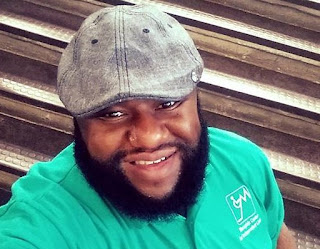
By Allison Donald
Working as an Independent Living Specialist and advocate has come with its own set of challenges and none more frustrating than trying to find an accessible women’s shelter. In Memphis there are about 1,800 people experiencing homelessness, some are women and some have disabilities.
A few months ago a call came into our office from a woman with a disability looking for emergency shelter. She began to tell her story and she said she had nowhere to go. Her story is an all too familiar when I am talking to woman living with a disability in Memphis.
As we usually do, we put our heads together as a team and tried to come up with a viable solution that would keep this woman off the streets. MCIL is not an emergency shelter and our federal grant prevents us from owing local housing. We have to depend on our partners and the community to include women with disabilities in homeless shelters.
But mostly we were met with denial after denial for emergency shelter. Not because the shelters were full, but more than one shelter explained that having a customer with a visual disability would be too much of an insurance liability.
It was extremely frustrating to realize that most of these organizations saw her as trouble and somehow not within their mission. They did not view her as a human being who needed shelter and their services just like any other homeless woman.
Even though MCIL was able to find her shelter it still didn’t leave me or the team with a good feeling.
“Being homeless in the city of Memphis,” said Tamara Hendrix, lead organizer for H.O.P.E. (Homeless Organizers for Power and Equality), “is a no win situation for a single woman especially, that is one of the reasons H.O.P.E. was founded to get a free accessible shelter for people who find themselves in that situation”.
People with disabilities are disproportionately represented among all people experiencing homelessness. According to the point-in-time (PIT) counts conducted in January of 2017 by communities across the country, it is estimated that on any given day nearly one-quarter (24%) of individuals experiencing homelessness are people with disabilities (86,962 of 369,081 individuals).
The federal Americans with Disabilities Act, popularly known as the ADA, which outlaws disability-based discrimination in places of public accommodation, which includes, for example, emergency overnight shelters and social service facilities – homeless service providers cannot turn away persons with disabilities simply because of their disabilities or terminate residents because of a disability or disability-related behavior. However, individuals with disabilities whose behavior would constitute a direct threat to the health or safety of other individuals are not protected under the ADA.
Many of the homeless shelters are churches and many do not take public funds. In Memphis the emergency shelters and homeless service providers only have a slim relationship to a “place of public accommodation” that is covered by the federal law. While it seems clear that any shelter should treat people with disabilities equally, in Memphis, there is no clear federal, state or local mandate.
At any given point in time, 45 percent of homeless people report having had indicators of mental health problems during the past year. About 25 percent of the homeless population has serious mental illness, including chronic depression, bipolar disorder, and schizophrenia. While at any given time a homeless shelter may take-in a person with a disability, at the same time, emergency shelters feel that a psychiatric disability, physical disability or visual disability is also a reason why they may turn them away.
As a community in Memphis people living with disabilities are marginalized at every turn. It is time Memphis made a direct appeal that emergency shelters must include all the members of our community, even people with disabilities.




